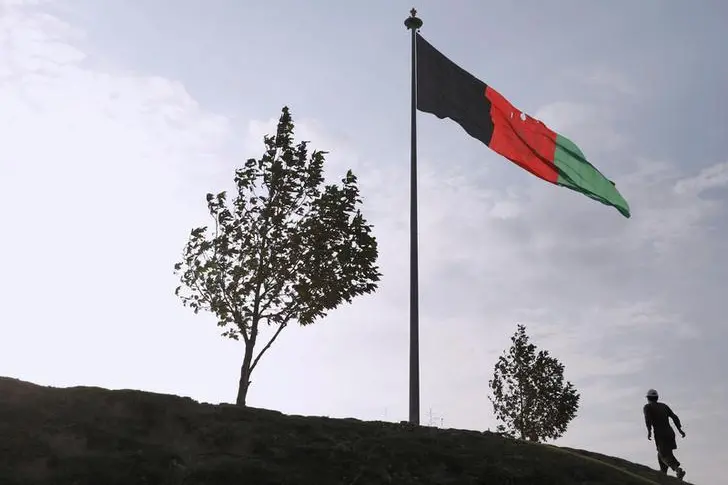PHOTO
The dreadful reality that is daily life for the people of Afghanistan has recently been the subject of some worldwide media reporting, though not nearly enough. Six months of Taliban control has seen the dissolution of civil society, a complete reversal of the advances made by Afghan women, and successive failures of government service provision. The Economist last week deemed Afghans’ public sentiment to be at its worst, citing a recent Gallup survey in which Afghanistan was the most miserable of all the countries polled.
Qatar last week successfully brokered a resumption in chartered evacuation flights for vulnerable Afghans and foreign citizens. It is part of a deal in which Doha will act as a proxy for US national security and humanitarian goals in Afghanistan. The news, though welcome, does highlight the difficulties the international community has had in engaging with the Taliban even as they rule over a country where half of the population needs humanitarian assistance to survive.
The sudden and haphazard withdrawal of US troops last August drew consternation in large part owing to the Taliban’s poor record on human rights, but the greatest fallout from their takeover has been the economic and humanitarian disaster. According to the UN Development Programme, two thirds of the population are on the brink of famine, with international sanctions and an abrupt halt to most foreign aid into the country hitting Afghans hard. The adversity they face is most poignant among the country’s children. Infant boys are being sold to wealthier families and young girls into marriage. As immature mothers, their bodies often cannot bear pregnancies and, exacerbated by malnutrition, they are delivering prematurely. The infant mortality rate in Afghanistan is the highest it has been in 20 years. The country has nothing to show for the billions of dollars that were pumped into the economy following the controversial US-led invasion of 2001.
For the Taliban, who have always adopted a chaotic and informal attitude to government, the humanitarian situation is out of their control. There is a complete lack of experience, technical expertise and qualified people among their ranks. However, despite their shortcomings, they argue that the government presided over by Ashraf Ghani had crippled the state. Racked by corruption, reliant on foreign aid for up to 40 percent of gross domestic product and the beneficiary of aid directly from Washington, it failed to use its two decades in power to build a coherent state.
The US failed to encourage its hand-picked Afghan leaders to build a self-sustaining economy, resulting in today’s financial free fall — typified by a stagnant economy and starving families. The country’s chronically aid-dependent government is showing the effects of its inability to generate significant tax revenue. For years, Afghan leaders supported a political culture of infighting, regionalism and nepotism that led, in some part, to the return of the Taliban.
Given that the country is lurching toward five decades of conflict, it is unsurprising that potholed roads, crowded hospitals and starving children are the stark realities of successive failure. Afghans do not need to face this reality: As they go hungry, $10 billion of the country’s foreign reserves remain frozen in international banks — funds that have been withheld from the Taliban as they have failed to show themselves to be responsible custodians of state resources.
Amid the humanitarian crisis, Taliban leaders deny the impending catastrophe. The economic situation, they maintain, is not of their doing, but their actions fail to inspire confidence. Though some women returned to universities last week, girls remain barred from schools. This is despite the assurances made by the Taliban that they would not derail the advances made in female education and empowerment in the country.
The Taliban have also facilitated Afghanistan’s status as the world’s largest supplier of illicit opium and heroin, producing more than 80 percent of global supply, according to UN reports. Taxes from opium profits are a mainstay of how the Taliban government finances itself. The trade has grown to the extent that it is likely earning the Taliban $400 million per year. With international aid withheld until the Taliban clean up their act and govern to certain standards, it is unlikely they will relinquish this narcotics trade, especially with the country’s economy in free fall. This reality serves to worsen the economic and humanitarian disaster in which Afghanistan finds itself.
There is no doubt that foreign governments should have foreseen that an economy so dependent on overseas aid would collapse with its withdrawal and that the hollow Western-backed government would unravel. The imperative now is to move away from the geopolitical shock of the Taliban takeover and instead focus on averting disaster. Encouragingly, the US Treasury Department last week gave global banks permission to transfer money to Afghanistan for humanitarian purposes, allowing aid groups to pay teachers and healthcare workers at state-run institutions without fear of breaching sanctions.
This follows the UN’s $5 billion humanitarian appeal and its efforts to release Afghanistan’s frozen assets and jump-start its banking system to avert further economic and social collapse. However, these are short-term solutions. What is required is a political agreement with the Taliban that sets out clear humanitarian benchmarks that, if not respected, will be withdrawn. This should be the first stage in a plan to move the country away from its cyclical conflicts so that it may focus on building a prosperous state, within which the Taliban may play a role, but one that is not so precarious that they may exacerbate its weaknesses.
- Zaid M. Belbagi is a political commentator, and an adviser to private clients between London and the GCC. Twitter: @Moulay_Zaid
Copyright: Arab News © 2022 All rights reserved. Provided by SyndiGate Media Inc. (Syndigate.info).





















